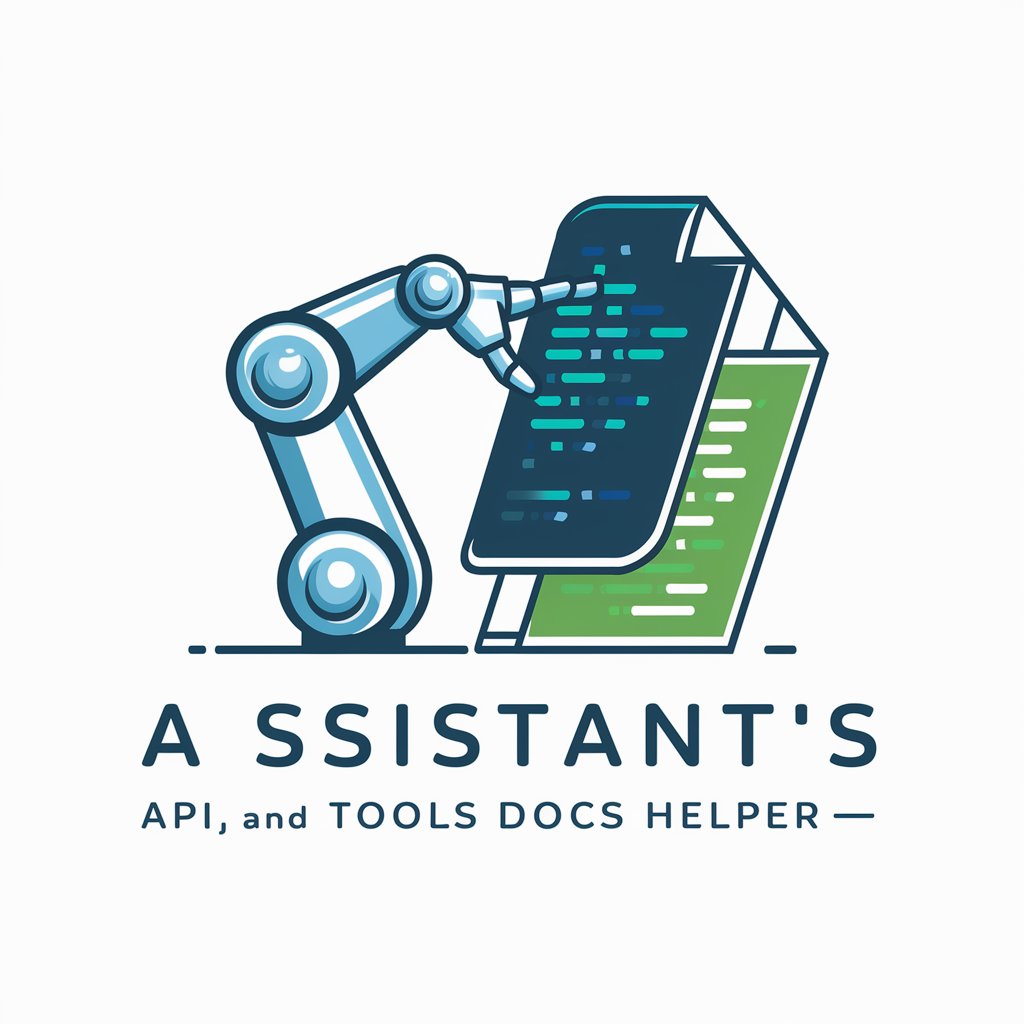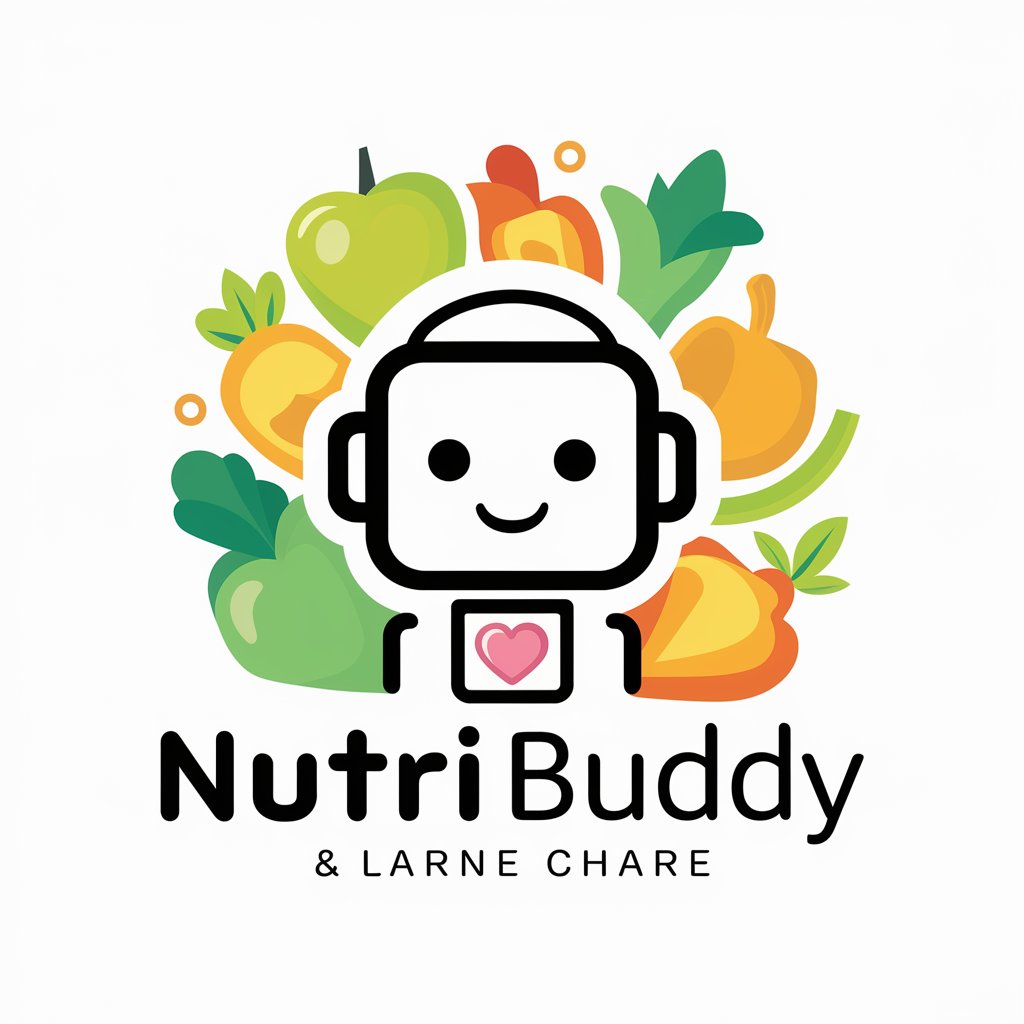
Assistants API and Tools Docs Helper - AI-powered Assistant Creation

Hello! How can I assist you with OpenAI's API and Tools today?
Empower your applications with AI assistance
Explain how the Assistants API can be integrated into an existing application.
Describe the key functionalities of the Tools provided by OpenAI.
Provide a step-by-step guide to using the Assistants API for a new project.
Outline the benefits of using OpenAI's Assistants API and Tools in a business setting.
Get Embed Code
Introduction to Assistants API and Tools Docs Helper
The Assistants API and Tools Docs Helper is designed to enable developers and organizations to build and deploy advanced AI assistants. These assistants leverage OpenAI's state-of-the-art models, including GPT-4, to perform a wide range of tasks. The core purpose of this system is to provide a framework where AI assistants can access and utilize OpenAI-hosted tools such as the Code Interpreter and Knowledge Retrieval, or even custom tools through Function calling. For instance, an AI assistant can be configured to run Python code in a sandboxed environment, analyze and generate files, retrieve relevant content from uploaded documents, or call external functions defined by the developer. This functionality enables the creation of highly personalized and capable AI assistants tailored to specific needs, ranging from personal math tutors to customer support chatbots. Powered by ChatGPT-4o。

Main Functions of Assistants API and Tools Docs Helper
Code Interpreter
Example
A developer integrates the Code Interpreter tool to create a personal math tutor assistant. This assistant can solve complex mathematical problems by writing and executing Python code on the fly.
Scenario
In an educational platform, users upload datasets in .csv format and request the AI to analyze data trends. The assistant uses the Code Interpreter to process the data, generate insights, and even create visual representations such as graphs.
Knowledge Retrieval
Example
An organization uses the Knowledge Retrieval tool to build a customer support assistant. This assistant pulls information from the company's product manuals and documents to answer user queries in real-time.
Scenario
For a tech company, customers often ask technical questions that require detailed answers from the product documentation. The AI assistant retrieves and synthesizes information from these documents, providing precise and helpful responses.
Function calling
Example
Using function calling, a weather forecasting assistant is developed. This assistant fetches live weather data by calling external APIs as defined by the developer.
Scenario
A travel planning app includes an AI assistant that offers real-time weather updates and advice. Users input their destination, and the assistant calls the relevant function to provide current weather conditions and forecasts.
Ideal Users of Assistants API and Tools Docs Helper Services
Developers and Tech Companies
Developers looking to create advanced AI-powered applications, and tech companies aiming to integrate AI assistants into their platforms. They benefit from the flexibility and power of the API to solve complex problems, automate tasks, and enhance user experiences.
Educational Institutions and Tutors
Educational platforms and tutors can leverage the API to build personalized learning assistants. These assistants can help students with homework, explain complex concepts, and even generate practice questions.
Customer Support Teams
Businesses aiming to improve their customer support efficiency can use the API to create AI assistants. These assistants can handle inquiries by retrieving information from documentation, thus reducing response times and improving customer satisfaction.

How to Use Assistants API and Tools Docs Helper
1
Start with a hassle-free trial at yeschat.ai, available without the need to log in or subscribe to ChatGPT Plus.
2
Review the detailed documentation on OpenAI's platform to understand the API's capabilities, prerequisites, and how to set up your development environment.
3
Create an Assistant using the OpenAI client library, specifying your desired model, tools (like Code Interpreter or Knowledge Retrieval), and any files or instructions that will guide the Assistant's behavior.
4
Experiment with your Assistant in various scenarios, using the interactive threads to send and receive messages, and to utilize tools functionality by calling models or external functions.
5
Utilize the feedback loop to refine your Assistant's instructions and tools usage for optimal performance, and share your use case in the Developer Forum for community insights.
Try other advanced and practical GPTs
POE Builder
Craft and Optimize Your Path of Exile Builds

Face Creator
Crafting Unique Faces with AI

Nutri Buddy
Empowering Your Diet Choices with AI

Scholarly Extractor
Streamline your research with AI-powered analysis and translation.

Jungian dream Interpreter
Unravel your dreams with AI-powered Jungian analysis.

Web Architect AI
Designing the Future of Websites with AI

PhD Advisor Search
AI-powered PhD Advisor Discovery

Tester Companion
Empower Your Testing with AI

PyGuru
Empower your code with AI-driven insights.

法律专家
Empowering legal understanding with AI

E-Sports Coach Bot
Elevate Your Game with AI Coaching

VinoMatch
Uncorking AI-Powered Wine Wisdom

Detailed Q&A on Assistants API and Tools Docs Helper
What is the Assistants API?
The Assistants API is a platform designed to build powerful AI assistants. It allows developers to create assistants capable of performing a wide range of tasks by accessing OpenAI models and tools, managing conversation threads, and processing files.
How can I incorporate file processing in my Assistant?
You can process files by uploading them to the OpenAI platform with an 'assistants' purpose. These files can then be accessed by your Assistant during its runs, allowing for operations like data analysis or visualization, depending on the file type and the tools enabled.
What types of tools can Assistants API use?
Assistants can use a variety of tools, including Code Interpreter for executing Python code, Knowledge Retrieval for accessing external documents or proprietary information, and custom functions through Function calling, expanding their capabilities beyond the base model.
Can I customize the behavior of my Assistant?
Yes, you can customize your Assistant's behavior through the instructions parameter to define its goals and personality, and by selecting the tools it has access to. This allows for a wide range of applications, from customer support to data analysis.
What are some common use cases for Assistants API?
Common use cases include building chatbots for customer support, creating educational tutors, automating data analysis and visualization tasks, and developing personalized content generation tools.